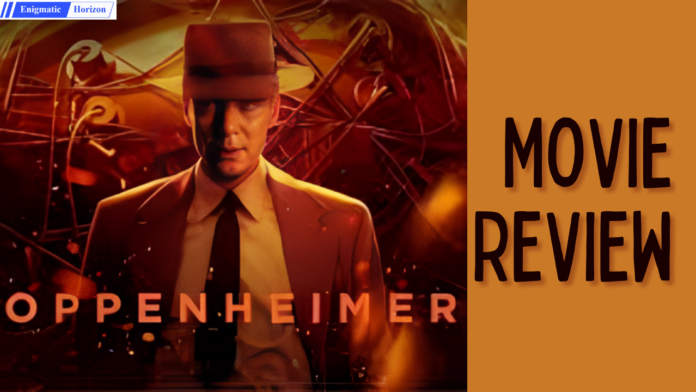Karthikeyan Jayashankar
In Christopher Nolan’s latest directorial venture, Oppenheimer, the auteur takes a significant departure from his usual grandiose, visually stunning spectacles to delve into the complicated life of J. Robert Oppenheimer, the person regarded as the father of the atomic bomb. To say the film is dialogue-heavy is an understatement, and the exhaustive biopic presents a thought-provoking and dramatic exploration of Oppenheimer’s life, his contributions to science, and the morally complex world of atomic weaponry.
With Cillian Murphy delivering a compelling performance as Oppenheimer and Robert Downey Jr. breaking free from his Marvel persona, the film offers a captivating experience for both history enthusiasts and cinema aficionados alike.
At more than three hours long, Oppenheimer might seem daunting for some viewers, but Nolan masterfully weaves a complex narrative that manages to keep audiences engaged (and confused) throughout. Regardless, although most viewers are likely to find the first half boring, the film picks up its pace and gets interesting in the second half. The film’s strength lies in its meticulous attention to detail, recounting historical events from the perspective of the titular character and capturing the essence of Oppenheimer’s personality and struggles. Despite the slow pacing in the first half, the deliberate approach gives the audience ample time to grasp the intricacies of the science and the geopolitical landscape surrounding the development of the atomic bomb.
Cillian Murphy’s portrayal of J. Robert Oppenheimer is nothing short of exceptional. His ability to embody the physicist’s intellectual brilliance, inner conflicts, and human vulnerabilities is a testament to his talent as an actor. Murphy brings intensity and depth to the character, allowing the audience to connect with the man behind the science. As Oppenheimer’s moral dilemmas and ethical struggles unfold, Murphy’s performance becomes the emotional anchor that holds the movie together.
Stepping away from his iconic Tony Stark role, Robert Downey Jr. proves his versatility as an actor with his portrayal of a shrewd and ambitious politician involved in the atomic bomb project. Downey Jr.’s charisma and screen presence add a layer of intrigue to the narrative, providing a compelling counterbalance to Murphy’s Oppenheimer. Matt Damon, Florence Pugh, Emily Blunt, and the plethora of other actors support the film amply in the limited screen time they get.
Visually, Oppenheimer might not match the breathtaking spectacles of Nolan’s earlier works, but it compensates with its attention to historical accuracy and period detail. The production design and cinematography work in harmony to transport the audience back to the era of World War II, immersing them in the intense atmosphere of scientific discovery amidst worldwide turmoil. The scene when J. Robert Oppenheimer has to make a speech after the atomic bomb is dropped on Japan (Hiroshima and Nagasaki) is a testament to Christopher Nolan’s prowess as a director and storyteller.
It is a commendable departure from typical Hollywood biopics, choosing to highlight the complex human drama behind the scenes of one of history’s most significant scientific breakthroughs.
Nolan’s signature nonlinear storytelling technique adds an intriguing layer to Oppenheimer, as it allows for a deeper exploration of the character’s past and motivations. Although this approach might require some extra attention from the audience, it ultimately rewards them with a richer understanding of the protagonist’s journey.
Speaking from an Indian perspective, many Indians have expressed their disapproval of a particular scene in the movie. As most of us are already aware, Oppenheimer drew inspiration from the Bhagavad Gita. But the way this has been shown in the film, during an intimate scene, has disappointed many Indian fans.
In conclusion, Oppenheimer stands as a profound and gripping biopic that showcases Christopher Nolan’s storytelling prowess beyond his typical blockbuster fare.
Rating 7/10
